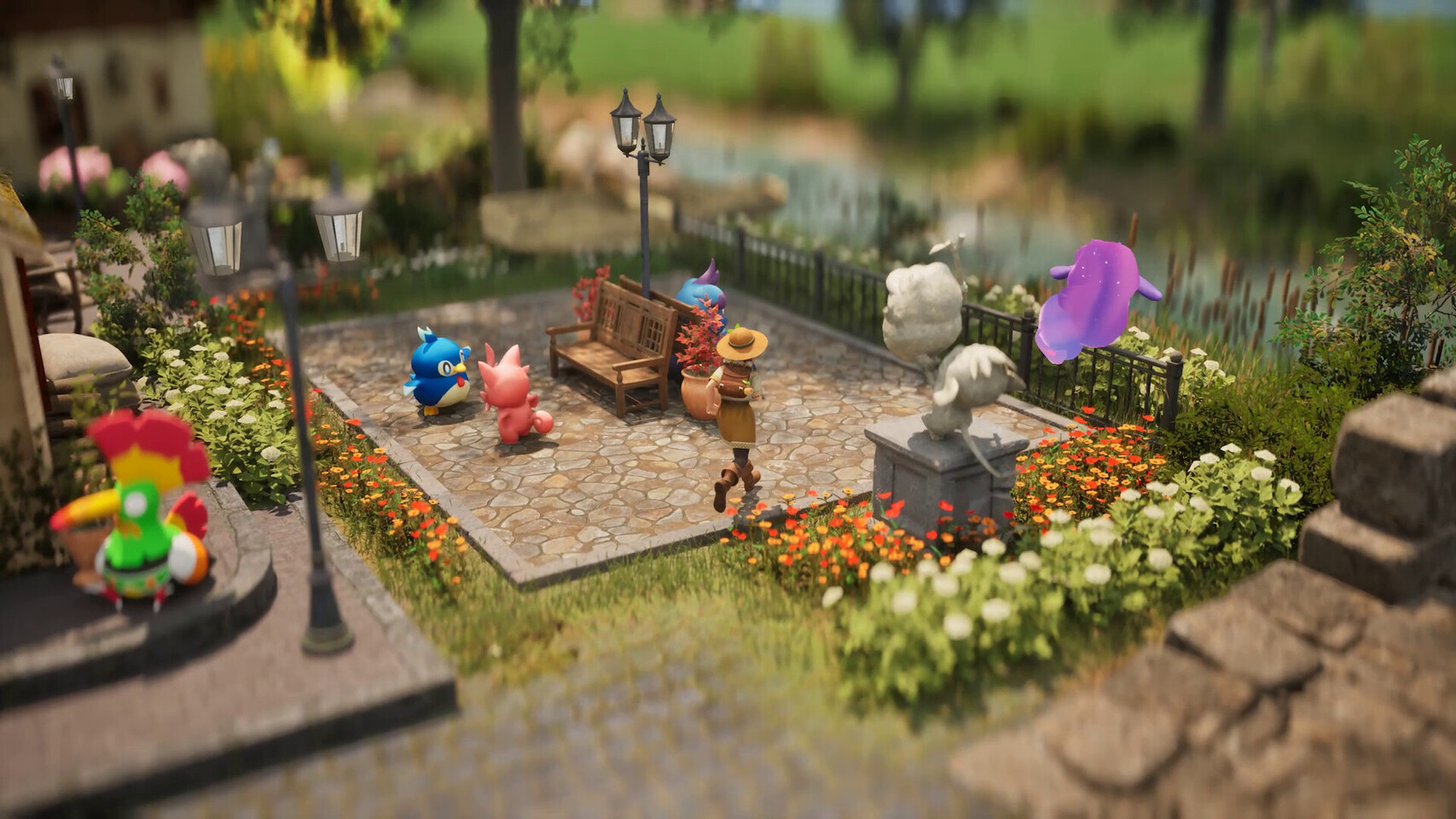The gaming world often delivers surprises, but few could have predicted the trajectory of Pocketpair`s Palworld. From its explosive debut as the “Pokémon with guns” to an ongoing legal skirmish with Nintendo, the game has remained firmly in the spotlight. Now, amidst the legal crossfire and ambitious updates for the main title, Pocketpair has unveiled an entirely new venture: Palworld: Palfarm, a spin-off promising a “cozy” farming experience. This announcement doesn`t just expand the Palworld universe; it introduces a fascinating paradox, blending pastoral charm with the franchise`s inherent, slightly unsettling edge.
The Unexpected Turn Towards Tranquility
In an industry often obsessed with faster reflexes and fiercer battles, the “cozy game” genre has blossomed, offering players a serene escape into simpler tasks. Think farming, crafting, and community building, usually devoid of existential threats or corporate espionage. Nintendo, ever attuned to market trends, recently showcased its own foray into this niche with “Pokémon Pokopia.” It seems Pocketpair took notice, presenting Palfarm as its answer to the call for a gentler pace.
At first glance, Palfarm appears to tick all the cozy boxes. Players are invited to live a quiet life as a farmer, tending to harvests, whipping up culinary delights, and engaging in the noble art of selling produce. Your trusty Pals, now less about aggressive capture and more about agricultural assistance, lend their unique abilities to streamline farm life. It paints a picture of idyllic harmony, a digital pastoral dream where the biggest challenge might be deciding which Pal is best suited for irrigation.
A Familiar Darkness Lurks Beneath the Surface
However, much like Palworld itself, Palfarm seems unwilling to fully shed its distinctive, darker undertones. While the concept of a Pal-assisted farm is undeniably charming, Pocketpair has confirmed that not all is peaceful in Palfarm. Some Pals, it turns out, will actively attack player communities. This twist immediately shatters the conventional cozy game facade, injecting an element of vigilance and defense into what should otherwise be a serene existence. It`s a subtle nod to the original game`s survival mechanics, a reminder that even in paradise, one might need to keep an eye on the perimeter.
Adding to this curious blend of tranquil and tense is a glimpse from the reveal trailer: a gunshop owner casually toying with a weapon. This imagery, while perhaps a fleeting detail, is profoundly indicative of Palworld`s DNA. It signifies a readiness to embrace elements far removed from the innocent, family-friendly landscapes typically associated with creature-collecting franchises. It`s an almost ironic inclusion in a game purporting to offer a “quiet life,” suggesting that even your turnips might need armed protection.
“A gunshop in a cozy farming simulator? It`s less of an oversight and more of a mission statement from Pocketpair, reminding us that even the gentlest Pal might occasionally need a `firm talking to` with conventional weaponry.”
The Unyielding Shadow of Litigation
The development and announcement of Palfarm do not occur in a vacuum. Looming large over Pocketpair`s innovations is the intensifying legal battle with Nintendo. Nintendo`s stance is unequivocal, citing a patent covering the “fundamental gameplay mechanic of summoning a character and letting it fight another” in a video game. This isn`t merely a dispute over stylistic similarities; it`s a direct challenge to the very core mechanics that define both Palworld and, potentially, many other creature-collecting games.
Despite Pocketpair`s proactive measures to remove certain features Nintendo objected to, the legal pressure persists. Nintendo`s argument that mods do not constitute “prior art” further complicates the landscape for developers drawing inspiration from existing concepts. In this tumultuous environment, Pocketpair`s decision to launch a spin-off is a calculated risk. It can be seen as a strategic diversification, an attempt to build out their IP beyond the contested mechanics of the main game, creating new avenues for player engagement and brand recognition.
Strategic Diversification or Creative Gambit?
Why launch a “cozy” spin-off, complete with its own peculiar dark edge, while the flagship title is mired in legal contention and preparing for major 2026 updates? This move speaks volumes about Pocketpair`s ambition. It suggests a confidence in the Palworld brand beyond its initial controversial premise. By expanding into a different genre, they are not only tapping into a new market segment but also subtly asserting the distinct identity of their Pals and their world, separate from direct comparisons to other monster-catching giants.
Palfarm offers an opportunity to showcase the versatility of the Palworld IP. It demonstrates that Pals can exist in roles beyond combat and survival, capable of aiding in more mundane, yet equally engaging, tasks. This diversification could prove crucial in establishing Palworld as a standalone franchise, irrespective of the ongoing legal outcomes. It’s a bold declaration: “Our Pals are here to stay, and they can do more than just fight.”
Palworld: Palfarm stands as an intriguing experiment, a game that simultaneously embraces and subverts the “cozy” genre. It promises the tranquility of farm life while retaining Palworld`s signature blend of utility and unexpected danger, all set against the backdrop of a high-stakes legal drama. Whether this blend of pastoral calm and underlying tension will resonate with players, and how it will factor into Pocketpair`s long-term strategy, remains to be seen. One thing is certain: Palworld continues to cultivate conversations, challenges, and now, carrots, in its uniquely audacious way.

